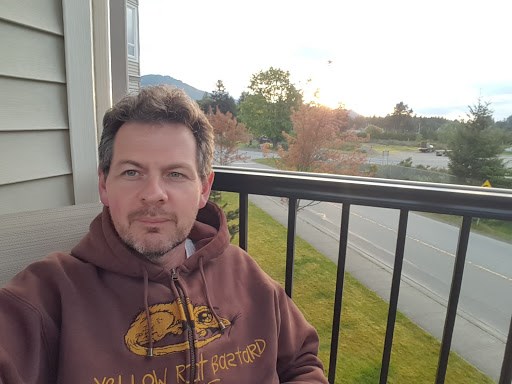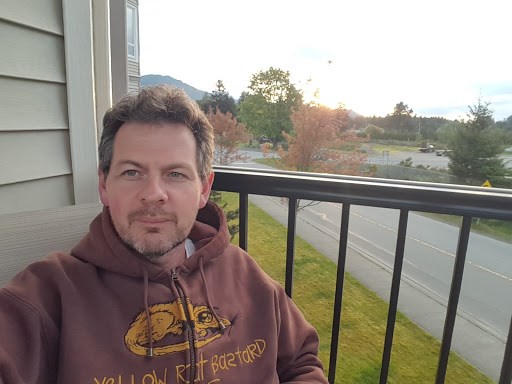ŌĆ£All you need is love,ŌĆØ sang The Beatles, which is not a bad thought to start with, though admittedly they also sang ŌĆ£I am the walrus,ŌĆØ so I would be wary of taking too much advice from pop groups.
Today is, as most of us would have realised ŌĆśValentineŌĆÖs DayŌĆÖ and love is in the air. But itŌĆÖs a very particular kind of love, a romantic, erotic love of the type normally shared by two people.┬Ā ItŌĆÖs an idealised love, one celebrated in movies and songs and poetry and books, but as we all know, itŌĆÖs not the only kind of love there is ŌĆō and this particular celebration of it, nice as it is, doesnŌĆÖt begin to tell the whole story, and if we think itŌĆÖs the only kind of love to aim for, or the only kind worth having, then we face being deeply disappointed!
Today, Wednesday February 14, is also in the church calendar this year (it moves every year) ŌĆśAsh WednesdayŌĆÖ ŌĆō the beginning of the season of Lent, 40 days devoted to a particular discipline of prayer, learning, reflection, and for some, self-denial or ŌĆśfastingŌĆÖ.┬Ā Ash Wednesday has a solemnity about it that encourages us to think about our own mortality, and the ways in which we fail to live up to being the people we want to me.┬Ā And it is also about love.┬Ā Ash Wednesday reminds us of a God whose love, whose commitment to us, whose devotion to us, is eternal and unlimited ŌĆō stronger than death, and not dependent on anything we do or have done.┬Ā ItŌĆÖs a love that takes us as we are, and knows every part of us, and loves us completely whether we feel worthy of it or not.
This love is the heart of the Christian faith, indeed it is a shared theme across the great religious traditions of the world.┬Ā Love, says the first letter of St John in the Christian Bible, is what God is made of: ŌĆ£Those who love not, do not know God, for God is love.ŌĆØ Or, as the Black-Eyed Peas said ŌĆ£If you never know love then youŌĆÖll never know God.ŌĆØ
But before I go too far into what might seem a ŌĆślovey-dovey lovefestŌĆÖ itŌĆÖs worth considering what this kind of love might be, and what it might mean.┬Ā This love of God, from God, and this love which is the heart of being human is much more than ŌĆśnice feelingsŌĆÖ, attraction, or affection.┬Ā Love is the substance behind the universe ŌĆō to keep the pop song theme, as our own Bruce Cockburn sang, ŌĆ£Oh love which fires the sun, keep me burning.ŌĆØ This love is tough, committed, giving, sacrificial, forgiving, inspiring, challenging, disturbing, powerful.┬Ā It is a love which has a hard edge, continuing to love even that and those who are unlovely and seemingly unlovable.┬Ā ItŌĆÖs a love which stands for justice, a love which transforms, and a love which does not give up.
ItŌĆÖs a love which makes a difference in the world.┬Ā As I mentioned in SaturdayŌĆÖs ŌĆśFaith ForumŌĆÖ I am privileged to lead and serve a church community passionately committed to social justice, to advocacy and action alongside those who seek justice and peace ŌĆō we stand up for and work towards inclusion, affirmation of all people, equality, peace, social change, a reduction in poverty, healthcare for all and the respect and dignity of every person.┬Ā We do that because of love ŌĆō the love we believe God has for all, a love we are seeking to own and to be agents of. ItŌĆÖs easy to talk about what we stand against and we often fall into that, but love speaks for people, rather than against, as Martin Luther King Jnr said: ŌĆ£Darkness┬Ācannot drive out┬Ādarkness; only┬Ālight can do that. Hate cannot drive out hate; only love can do that.
Yes, there are injustices, racism, colonial and exclusionary attitudes, oppression, prejudice and misuse of power which make us angry ŌĆō but anger can only sustain us in our fight for so long before we burn ourselves out. Love, however, never ends.┬Ā Love inspires us to keep fighting for that which is right and good and affirming, love inspires us to continue to work for the best for even those we donŌĆÖt agree with, or find attractive, or perhaps even like! But we do so because the love of God does exactly that ŌĆō and continues to keep us moving forward.┬Ā St Paul, one of the first Christian writers, shared the importance of love in the first letter to the Corinthians chapter 13, in it he reminds us that love is more important than knowledge, faith, or clever speech, that love makes demands on who we are and how we act, and that love remains everlasting.┬Ā ItŌĆÖs such a powerful piece that on this ŌĆśAsh ValentineŌĆÖs WednesdayŌĆÖ I want to leave you with the whole passage.
ŌĆ£If I speak in the tongues of mortals and of angels, but do not have love, I am a noisy gong or a clanging cymbal.┬ĀAnd if I have prophetic powers, and understand all mysteries and all knowledge, and if I have all faith, so as to remove mountains, but do not have love, I am nothing.┬ĀIf I give away all my possessions, and if I hand over my body so that I may boast, but do not have love, I gain nothing.
Love is patient; love is kind; love is not envious or boastful or arrogant or rude. It does not insist on its own way; it is not irritable or resentful;┬Āit does not rejoice in wrongdoing, but rejoices in the truth.┬ĀIt bears all things, believes all things, hopes all things, endures all things.
┬ĀLove never ends. But as for prophecies, they will come to an end; as for tongues, they will cease; as for knowledge, it will come to an end.┬ĀFor we know only in part, and we prophesy only in part;┬Ābut when the complete comes, the partial will come to an end.┬ĀWhen I was a child, I spoke like a child, I thought like a child, I reasoned like a child; when I became an adult, I put an end to childish ways.┬ĀFor now we see in a mirror, dimly, but then we will see face to face. Now I know only in part; then I will know fully, even as I have been fully known.┬ĀAnd now faith, hope, and love abide, these three; and the greatest of these is love.ŌĆØ
May you know the greatest of these, today and every day.
 Alastair McCollum┬Āis Rector of St. John the Divine Anglican Church in Victoria. He has a passion for the Gospel, motorbikes and bike culture, worship, philosophy, theology, guitars, single malt whisky, real ale, cinema and all things French.┬ĀYou can find Alastair at the church website: and┬Āon his blog:┬Ā
Alastair McCollum┬Āis Rector of St. John the Divine Anglican Church in Victoria. He has a passion for the Gospel, motorbikes and bike culture, worship, philosophy, theology, guitars, single malt whisky, real ale, cinema and all things French.┬ĀYou can find Alastair at the church website: and┬Āon his blog:┬Ā
You can read more articles on our interfaith blog, Spiritually Speaking,



